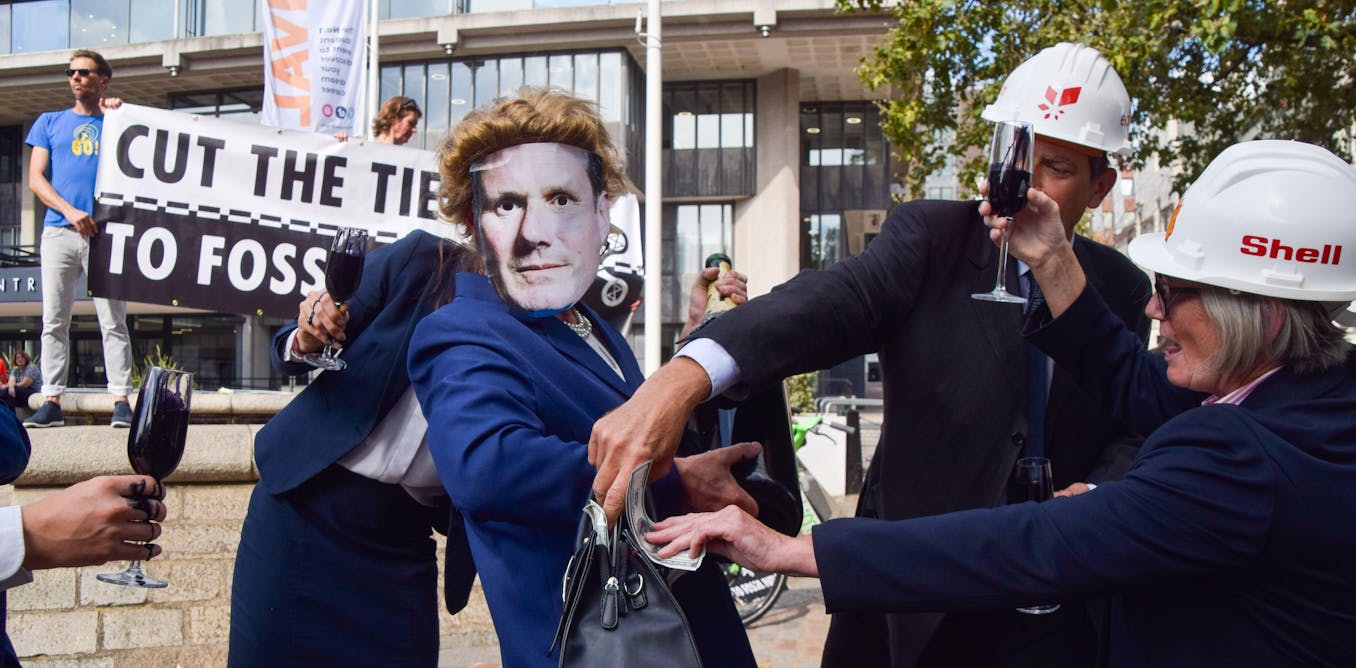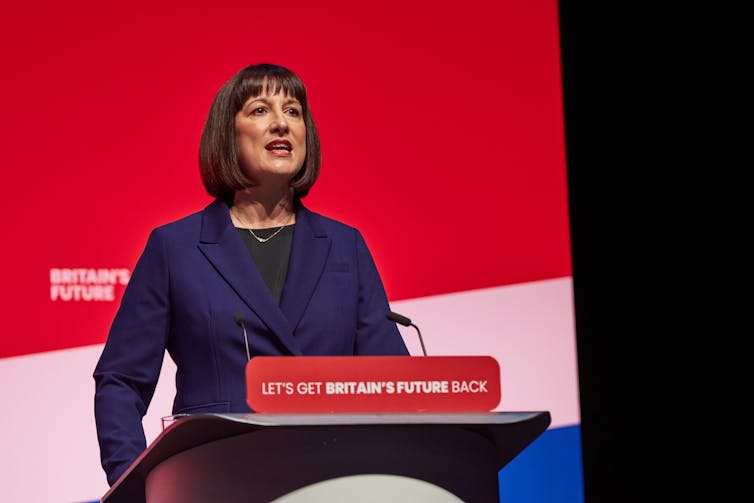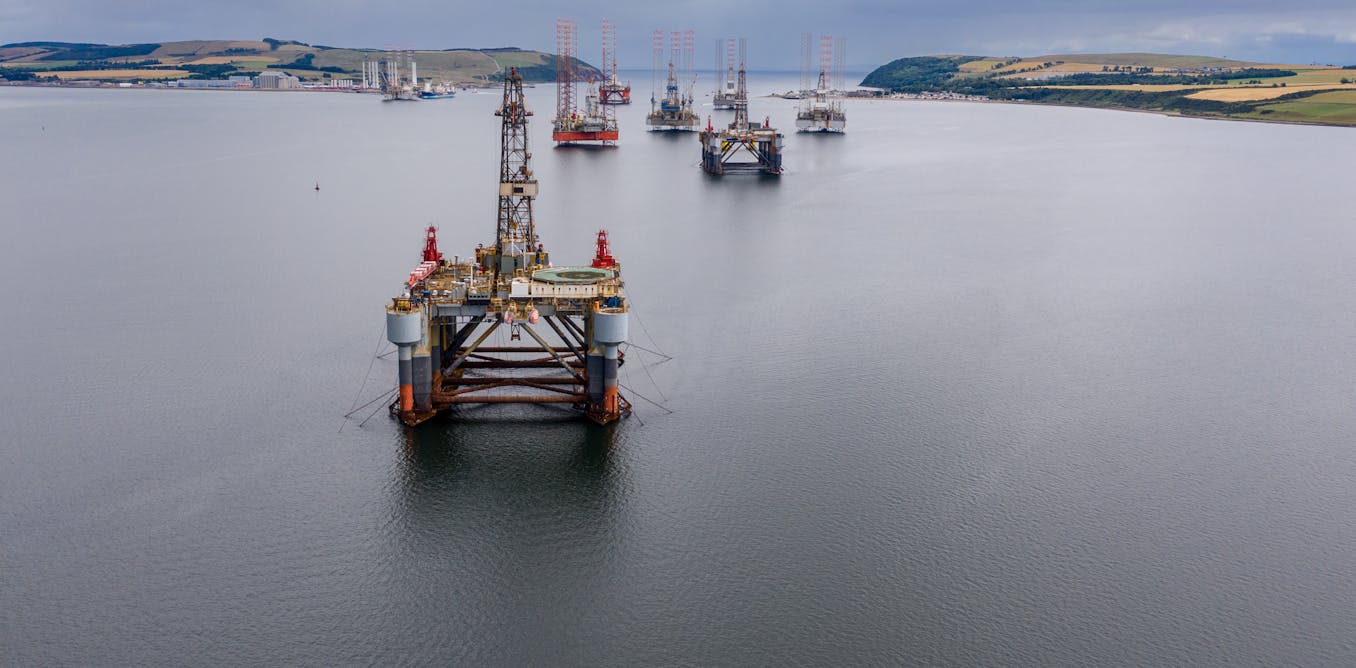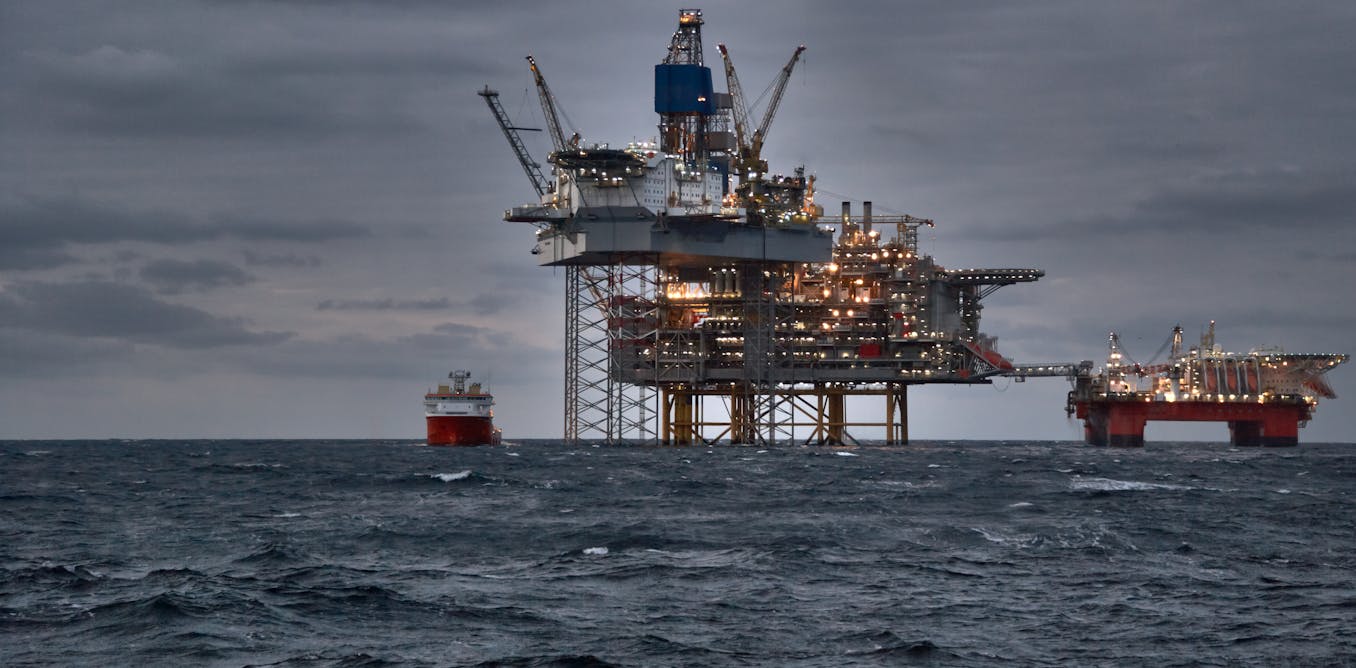
Labour’s £28 billion green investment promise could be watered down – here’s why
Keir Starmer’s flagship climate change pledge has already been cut back significantly since 2021.
Feb. 2, 2024 • 7 min • Source
Mathematicians will tell you that 28 is a perfect number; it is not proving quite so perfect for Labour leader Keir Starmer.
Starmer is set to make a “final” decision on whether Labour will commit to investing £28 billion a year as part of its green prosperity plan. The party hasn’t confirmed whether this figure would be met by the end of the next parliament (fiscal year 2029-30), let alone the middle of it.
Unions, environmentalists and investors have given their support to the pledge. Others (some of them Labour Party members including Ed Balls) say such a commitment is a liability. “Starmer the spendthrift” is already a club that the Conservatives and some newspapers have been using to try to close the yawning gap in the polls.
2021 vision
The £28 billion a year figure was first announced at Labour party conference by shadow chancellor Rachel Reeves in September 2021.
Reeves said then that the time for dither and delay was over, and that she wanted to be known as the first green chancellor. She would spend £28 billion each and every year of the next parliament (should Labour take office).

A year later more flesh was put on the bones. Labour announced the green prosperity plan which included a state-owned company called Great British Energy (responsible for investing in technologies less ready for market like tidal power) housing renovations and support for green steelmaking.
These announcements were made during a party conference in which the Labour leadership refused to allow a motion to discuss public ownership of energy assets (wind turbines, transmission lines, grid-scale batteries).
It was also in the midst of the short-lived Liz Truss premiership. Then-chancellor Kwasi Kwarteng’s fiscal statement sent interest rates spiralling, and therein lies the trouble for Starmer and Reeves. When they made the promise two-and-a-half years ago, it was very, very cheap to borrow money. Now, not so much.
But the sums involved, even if borrowed without a windfall tax on energy giants, are expected to hardly increase the national debt.
The watering down begins
From the beginning of 2023 Starmer and Reeves were remarkably quiet on the £28-billion figure and the green prosperity plan, which was launched by its main author Ed Miliband in March 2023.
Labour’s opponents were not so reticent. On June 5, the Daily Mail ran a front-page story claiming families faced a £1,000-a-year bill for “Labour eco plans”.

Days later, Reeves announced the first of several backwards steps on her 2021 commitment. She said that £28 billion would not be invested in a Labour government’s first year, but more likely in the second half of the five-year term. Further concessions followed in October, pushing the date back to the end of the parliament and introducing a rule that each pound of public investment would have to attract three from the private sector.
A series of interviews by Starmer in January 2024 threw further doubt on the £28-billion figure, and the Labour Party’s “campaign bible” – instructions for prospective MPs on slogans to use and policies to quote to voters – was silent on the number.
Then, on Friday January 19, the Sun newspaper ran another story quoting an (unnamed) senior Labour figure who said the spending target would be scrapped.
An upcoming meeting may resolve matters one way or another. The date for Labour’s election manifesto to be finalised is February 8.
Supporters of the commitment are various unions, including the firefighters union, whose members are battling more floods and fires as a result of climate change. The Labour climate and environment forum, an internal pressure group set up just over a year ago, has released a 17-page report listing the benefits of the proposed spend. Some labour frontbenchers are also vocal in their support.

Within the Labour party there is the familiar argument that you can only implement a policy once you are in government, and so anything that will scare voters or give opponents a stick to beat you with should be discarded. As per the title of an article in the Times by Peter Mandelson: “Few voters will be thrilled by Keir Starmer turning into another Greta Thunberg”.
Choices have consequences
There is a scene in the 1987 Stanley Kubrick film Full Metal Jacket that those who advocate Labour sticking to its (already watered down) spending commitment should show Starmer.
A marine recruit is quizzed by a ferocious drill sergeant about whether he believes in the Virgin Mary. The recruit, played by Matthew Modine, says he does not. The drill sergeant explodes and threatens the recruit with a beating if he does not change his answer. The recruit says:
Sir, the private believes that any answer he gives will be wrong and the senior drill instructor will beat him harder if he reverses himself, sir!
The drill instructor respects his guts, and makes him leader of the platoon.
If Starmer sticks to the £28 billion promise he can expect headlines decrying “tax and spend” and “same old Labour”. If he dumps it, he will demoralise door knockers, unions and investors. He will also not stop the attacks on him from the Conservatives and right-wing newspapers. They will add “flip-flopper” (something they’ve already been saying) to the list of his perceived sins.
They will, as the insight of the fictional marine suggests, beat him harder.
Climate change is, as the UK parliament agreed in 2019, an emergency. Public support for action is surprisingly robust. Doing so will require credibility that only comes from saying what you are going to do and how much you are going to spend.
Promising (to save) the world, but to do it on the cheap, makes you look silly or shifty – or both.
Marc Hudson does not work for, consult, own shares in or receive funding from any company or organisation that would benefit from this article, and has disclosed no relevant affiliations beyond their academic appointment.


